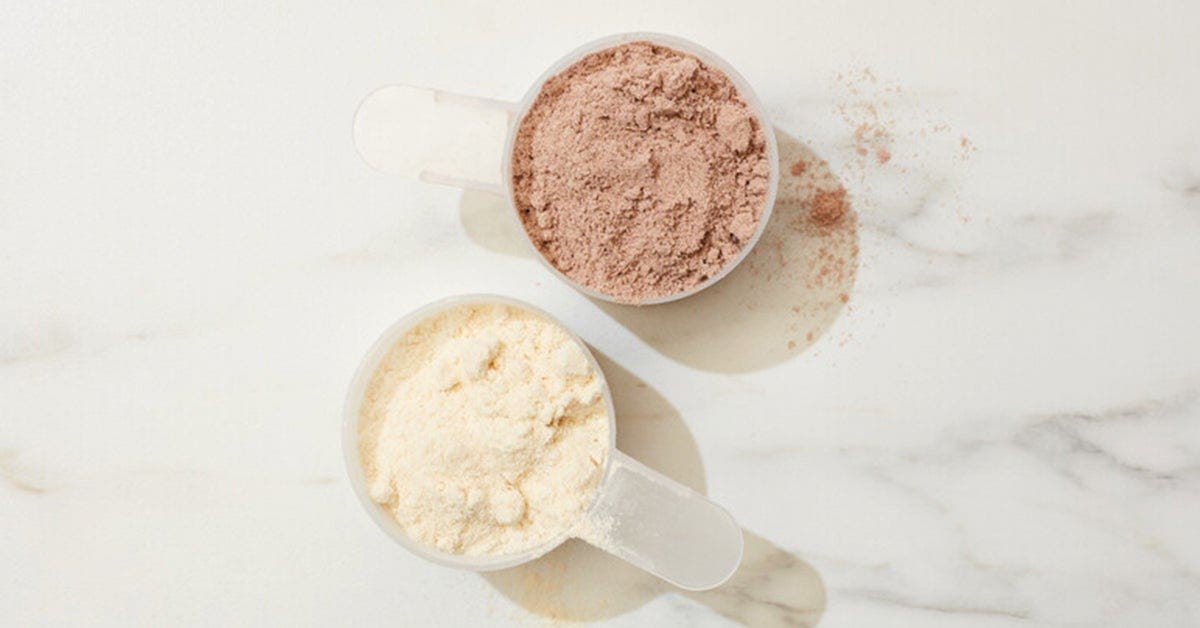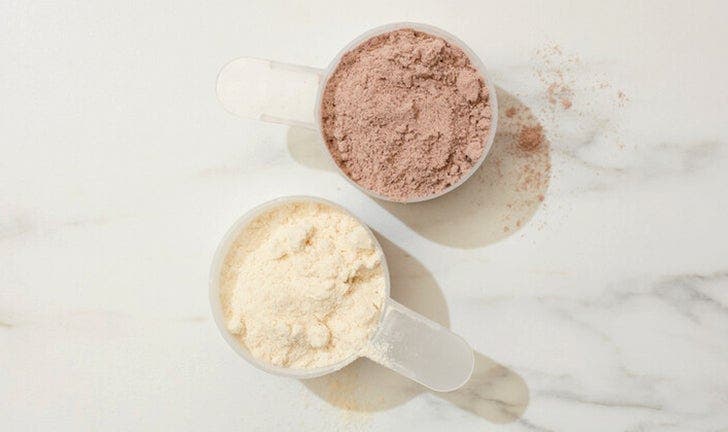The Scoop on Protein Powder


Protein powder has become ubiquitous with gym and fitness culture, but if you’ve never used it, you might not know whether you need it or what to look for if you want to try it.
Sergio Pedemonte, a certified personal trainer and owner of Your House Fitness in Toronto sheds some light on this.
What is protein powder?
“Protein powder is a supplement that brings a high level of protein to the diet without the addition of other forms of macronutrients such as carbohydrates or fats,” Pedemonte explains. “Protein powder comes from three main sources: whey protein from milk, soy protein from soybeans, and hemp protein from hemp plants.”
Whey protein, he says, is the least expensive and most widely used protein, but it can cause stomach issues, especially if you are lactose intolerant.
“Soy protein is the second cheapest protein powder and does not irritate the intestines as much as whey,” he says, though it may not taste as good.
“Hemp protein is the most expensive and will also not irritate the gut as much as whey. Hemp protein may also not taste great when compared to whey protein.”
Is protein powder necessary for fitness?
Technically, the answer is no. Whether you need protein powder or not depends on your typical diet and preferences.
Pedemonte explains that if you’re trying to build muscle, it is recommended that you consume about 1.6 grams per kilogram of body weight in protein to make sure you have enough protein to supply muscle growth and normal repair in the body.
In cases where you’re not eating enough protein through your typical diet, protein powders can help.
“Protein supplements are low in fats and carbohydrates, making it possible to drink a protein shake without risking overeating during the day and still being able to consume the required daily protein amounts.”
What should you look for on the nutrition label?
“When looking for the right protein powder for you, [you] should first consider how your body handles dairy products,” says Pedemonte. “If you know dairy does not sit well with you, try soy or hemp. If you are on a budget, whey is the cheapest and soy is the next best option if your body does not handle dairy well.”
The next thing to look for is extra branched-chain amino acids (BCAAS) or creatine or anything else that is not the pure protein powder, he says.
Elliot Reimers, a NASM Certified Nutrition Coach and fitness expert at Rave Reviews, adds that it’s important to check the ingredients label for added sugars and high sodium. “It’s best to stick with the ones with pure protein sources,” he says.
You’ll also want to check the labels for third-party certification. “Since protein powders are supplements, they aren’t regulated by the FDA, so your quality assurance comes from third-party certification,” Reimers explains.
Can protein powder cause weight gain?
“Protein powder does have calories and therefore if your diet remains the same and the protein powder is added, there will be extra calories in the diet,” which could lead to weight gain, Pedemonte says.
“However, protein powder is designed to allow you to reduce the amount of food you are eating while still allowing you to consume a high amount of protein, [and] this will lead to fat loss and muscle retention.”
Ultimately, you’ll have to gauge whether adding protein powder to your diet is right for you.
“A healthy balanced diet will always beat protein supplementation,” Pedemonte says, “however, a poor diet with low protein is even worse for muscle gains than supplementation with protein powder.”
